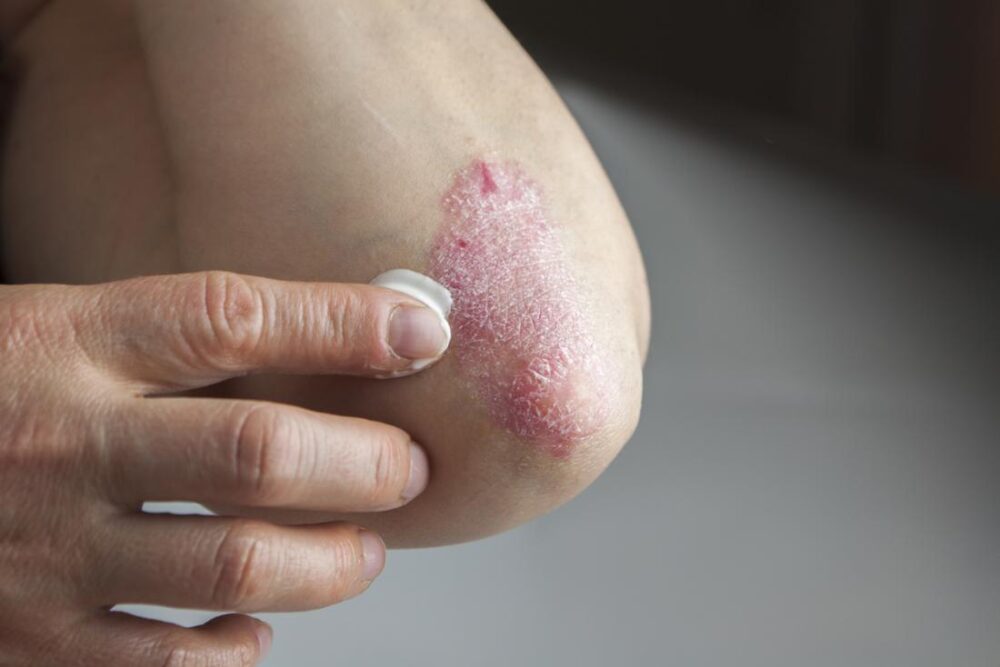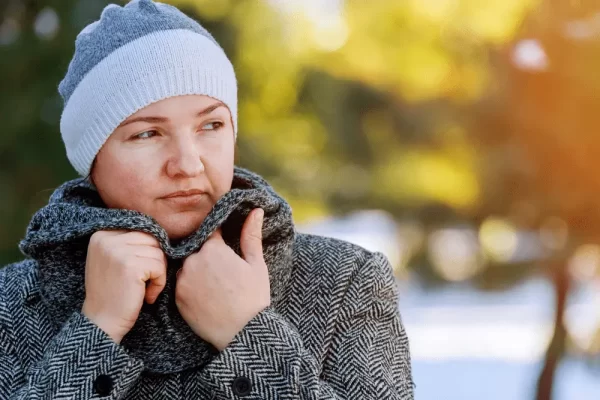Although the actual cause of psoriasis is unknown, people living with psoriasis experience different triggers that may make symptoms worse or can cause flareups.
Psoriasis is categorized is a chronic autoimmune disease that causes excess and rapid growth of skin cells, characterized by flaking, redness, and inflammation of the skin. Researchers are yet to find the exact cause of flares, but it is suggested that the immune system and genetics play a significant role in psoriasis and its flare-ups development. It’s believed that the sudden rise in inflammation that these psoriasis triggers prompt reactivates the autoimmune response.
Psoriasis flare-ups are not only uncomfortable and itchy but can also be unsightly which can make you conscious and insecure about yourself. Identifying and knowing how to manage and avoid triggers can significantly reduce your risk of flare-ups and worsening symptoms.
Here we explore some common psoriasis triggers and what can you do to deal with them better.
Skin Injuries
An injury of the skin such as a cut, bruise, or bump can sometimes cause the reactivation of psoriasis symptoms. New lesions can appear in an area where you were injured, have had surgery, or had an infection. Other types of skin injuries that may trigger psoriasis symptoms include vaccinations, sunburns, insect bites, and vigorous scratching or shaving.
To reduce your risk of a flareup due to skin trauma, take steps to reduce your risk of skin injuries immediately, such as wearing bug spray, avoiding scratching your skin, and using a topical ointment to reduce itchiness.
Cold and Dry Temperatures
Psoriasis triggers can also be seasonal. Extreme cold, dry temperatures are another common trigger for some people. Winter months can make managing your symptoms all the more difficult due to the combination of cold and dryness that promotes the cracking of the outer layer of skin, called the stratum corneum. This may cause inflammation that triggers the psoriatic flares.
The key is to keep the frequency of your flare-ups as low as possible is to give your skin adequate moisture. Moisturizing the skin regularly with thick, emollient lotions will help lock in the moisture and prevent cracking. Look for creams and lotions which are fragrance-free as fragrance is also known to sensitize the skin and cause irritation.
Using a humidifier at home during winter may also help. Exposure to sun or ultraviolet light B (UVB) is another way and has been shown to be an effective psoriasis treatment.
Infections
Anything that can affect your immune system can easily trigger psoriasis. Infections caused by a bacteria or virus are common causes of psoriasis flares. In particular, strep throat, a bacterial infection, is known to trigger guttate psoriasis in children. Other infectious diseases that can cause your body’s immune system to respond, leading to the outbreak of psoriasis include colds, influenza, mumps, and chickenpox.
The best way to avoid flares caused due to infections is to treat them as soon as possible.
Stress
Stress is known to cause a variety of illnesses, including psoriasis triggers. High stress levels may easily trigger a flare-up. Stress increases the body’s inflammatory response, and it can also make other skin conditions worse. Research says the release of cortisol during stress increases systemic inflammation as well as body temperature, both of which act as independent triggers for psoriasis.
Stress and psoriasis symptoms can fuel each other. While stress can trigger psoriasis symptoms, the appearance of lesions can induce stress, perpetuating psoriasis symptoms.
Managing your stress levels can significantly reduce and possibly prevent potential flare-ups. Learning stress management techniques, such as meditation or yoga, and getting regular exercise are some of the effective ways you can try.
Medications
There are certain drugs and medications known to induce or worsen psoriasis signs. Treatments that can trigger psoriasis symptoms include use lithium, which is used to treat bipolar disorder and beta-blockers for high blood pressure. Various other medications which are likely to trigger psoriasis include Indocin (indomethacin), a prescription nonsteroidal anti-inflammatory drug (NSAID), chloroquine used to treat or prevent malaria, and ACE inhibitors used to treat high blood pressure.
If medications are the cause of your flare ups, it is best to talk to your doctor to change or discontinue your medication(s).
Smoking and Drinking
Heavy use of alcohol has been shown to trigger the body’s inflammatory response. And research published in May 2016 in journal Psoriasis found that smoking too increases the severity and frequency of psoriasis flare ups and can contribute to other health conditions, like cardiovascular disease.
Smoking instigates inflammation while constricting blood vessels throughout the body. Both smoking and excessive drinking can also make psoriasis treatment harder.
To avoid psoriatic flares, drinking in moderation or quitting overall will help with the frequency of the flare ups. The same applies to your smoking habits; the best thing you can do for yourself and your health is to quit.




